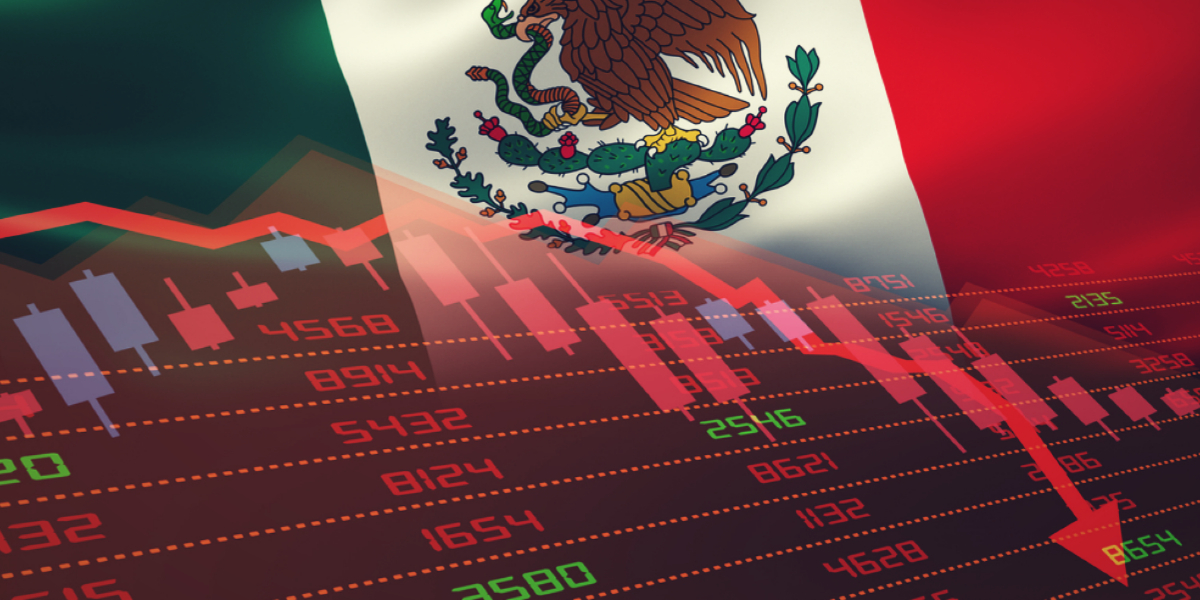Worth south of the border? Why Mexican stocks plummeted

Exchange-traded funds (ETFs) that represent entire countries are generally considered safer and less volatile than individual stocks. But Monday’s price action in Mexico-focused funds showed that country-focused assets could all fall.
To say change is happening in Mexico is an understatement. National reforms can be a good thing, but financial markets do not always welcome big changes. Changes in government spending can create uncertainty and disrupt the status quo, and new leadership may not be perceived as business-friendly.
But like any major change, a major market crash can present tremendous opportunities for open-minded investors. As long as there is a willingness to keep an eye on international politics and the economy, it may be the best value proposition for investors as they weigh Mexico’s uncertain future.
history is made
On June 3, former Mexico City Mayor Claudia Sheinbaum defeated all other candidates to become Mexico’s first female president. Sheinbaum, who belongs to the National Regeneration Movement, or Morena, party, won 58.6% of the votes counted, compared to just 28.4% for her closest rival.
Few expected her to lose, but her odds of winning were greater than many expected. Moreover, Sheinbaum and Morena’s party are expected to not only capture the presidency but also secure a supermajority in Congress, a two-thirds majority (compared to a simple majority of over 50%).
As a result, they will be able to pass laws and change the Mexican Constitution without meaningful opposition. Sheinbaum is widely expected to continue the policy reforms of outgoing President Andrés Manuel López Obrador. Although this could easily change given the Morena party’s overwhelming majority.
Moreover, Obrador is scheduled to remain president of Mexico until October 1, so he may attempt to push through a number of legal and constitutional changes before then.
“If I were an investor, I would think these people just got a blank check and what would happen,” said Antonio Ocaranza, a Mexican political analyst. “… López Obrador wants to complete his agenda and bear the political costs of these decisions, while at the same time starting Sheinbaum with a clean slate.”
Sheinbaum and her congressional allies could overhaul Mexico’s laws to give the government a stronger role in the telecommunications and electricity generation industries. On Wall Street, these changes may be viewed as unbusiness-friendly regulations.
Additionally, some investors may be concerned about the concentration risk posed by supermajorities.
“We are now firmly in the realm of one-party rule in Mexico. Not just in the Presidency and Congress, but across the country. It’s an absolute tidal wave,” said Duncan Wood, a senior adviser at the Wilson Center in Washington.
crazy monday in mexico
So despite history being made on Monday, market participants weren’t in much of a mood to celebrate. The Mexican peso fell about 4% against the U.S. dollar, reaching its lowest relative level since November.
Simon Quijano-Evans, chief economist at Gemcorp, said: “The reason the peso is lower is basically because there is no strong opposition. This has been an issue on investors’ minds recently. We always want to have some balance in a democratic system. .” he explained. Capital Management.
Meanwhile, the S&P/BMV IPC, an index that tracks Mexican stocks, fell 6% on Monday.
Interestingly, Indian stocks rebounded to record highs on the same day after exit polls suggested incumbent President Narendra Modi was very likely to be re-elected. Again, this shows that the market prefers “more” and gets nervous when change comes.
What about Mexican ETFs traded in the US? Two well-known ETFs are the iShares MSCI Mexico ETF (NYSEARCA:EWW) and the Franklin FTSE Mexico ETF (NYSEARCA:FLMX).
On Monday, the iShares ETF fell 10.74% to $57.93 and the Franklin ETF fell 10.03% to $28.78. So there may be value investment opportunities south of the border. Yahoo! Finance calculated EWW’s trailing 12-month price-to-earnings (P/E) ratio to be 11.97 and FLMX’s trailing P/E ratio to be 11.37.
Of course, you shouldn’t buy stocks or funds based solely on the P/E ratio. However, if EWW and FLMX are currently trading at low valuations, or at least reasonable valuations, diversifying your portfolio with a Mexico-focused ETF wouldn’t be a terrible idea.
After all, some would argue that U.S. stocks are extremely valuable right now and that geographic diversification is a reasonable response. Of course, fear and uncertainty about the political outcome are usually temporary, and asset prices could trend higher if markets accept that Mexico will survive regardless of who is ultimately in power.



